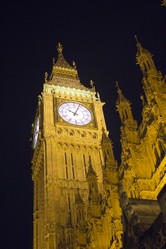The United Kingdom is suffering a major housing shortage. As one of Europe's most successful economies it attracts migrants seeking work, mainly from other European countries. In parts of the land, the South East notably, but also other wealthy areas, the pressures on housing consequent upon the situation are enormous, and prices are soaring, now to the point that purchasing a property is beyond the reach of many. But renting is increasingly expensive, and rents are soaring in places, as rent controls are anathema to the present government. The anti-European United Kingdom Independence Party is making inroads as voters feeling immigration pressures, notably in the South East move to them. They offer a quick, unintelligent fix, but as the system fails, what is to be done?
In the Independent newspaper today, 2 March 2015, we saw a possible solution: In the village of Beer, in Devon, an idyllic area of South West England, local families established a community land trust. In such pretty English villages houses are snapped up by rich people keen to be country dwellers, and many keep second homes while villagers cannot get a first one. The villagers asked the council to let them purchase building land and commissioned a design of seven homes, one for each of the member families, then they managed the project themselves. This is an example of civil society at work. It is community enterprise, not primarily for profit, but not opposed to it.
Another form of civil society in action is the Landshare project established by the successful celebrity chef and restauranteur Hugh Fearnley-Whittingstall. Hugh is concerned that food security in Britain is limited, so he wants to encourage communities and individuals and communities to grow their own. To achieve his goal his project seeks spare land to turn into allotments and smallholdings [in US parlance, community gardens and small farms.] Some councils have co-operated by providing land, while generous landowners have sometimes provided an acre or two. As a result families have land for cultivation.
Civil society also includes charities, such as churches, trade unions and food banks, along with a range of voluntary, non-profit organizations. There has been in Britain a long history of generous voluntary action, but in recent years it has become extended to self help activities of the kind outlined above. This is because people are seeing the inadequacy of the state to help them and the unwillingness and incapacity of capitalist institutions to assist on their own.Something else was needed, and the rebirth of civil society was an answer to the problem.









 Rewilding the Isle of the Thundergodon 02/17/2024
Rewilding the Isle of the Thundergodon 02/17/2024
 Adrienne von Speyr a life on the edge of heavenon 01/24/2024
Adrienne von Speyr a life on the edge of heavenon 01/24/2024
 The Granite Kingdom: a Cornish Journeyon 12/29/2023
The Granite Kingdom: a Cornish Journeyon 12/29/2023
 Some Scenic Areas in Northern Irelandon 05/27/2022
Some Scenic Areas in Northern Irelandon 05/27/2022



Comments
I think that various charitable organisations loaned money, and maybeibthe European Union helped, but I am unclear on the details.
I do not know the etymology of the name, but some place names in Devon and
Cornwall are anglicisations of ancient Celtic names, so they do not follow a Saxon model and are often not easy to explain.
But for a computer crash ;-{ that same paragraph in that same subheading called to mind another question.
It concerned the area families of Beer village, Devon, southwest England having "established a community land trust. In such pretty English villages houses are snapped up by rich people keen to be country dwellers, and many keep second homes while villagers cannot get a first one. The villagers asked the council to let them purchase building land and commissioned a design of seven homes, one for each of the member families, then they managed the project themselves. This is an example of civil society at work. It is community enterprise, not primarily for profit, but not opposed to it."
How was everything financed? And were the houses all equivalent in attractions and space?
The second paragraph to your first subheading, Examples of Civil Society in Operation, concerns a village called Beer ;-D.
What does the village name mean?
Thanks, after the political misery of the general election in the last week I could do with some positive comments. The party to which I belong was heavily defeated.
Your conclusion is a sound one!
What you are saying is what I said in my article on John Stuart Mill.
My opinion is that certain philosophies of government attract people who like to control others' lives, and I am thinking of socialism, whose authoritarian variety seems to attract people who lust for power over the details of people's lives.
No matter what country we live in, government needs to back off and stop trying to control our lives. We do need some government services, but just like children must leave their parents and live their own lives, we citizens need the opportunity to live our own lives freely as long as we do no harm to others.
Read the book, Small is Beautiful, by Schumacher. It is an enlightenment about how society should be run.
I see many ideas here that can also meet the requirements of third world nations. While the problems of these countries are many and multi-fold, the issues are universal. Homelessness, poverty, jobs, medical facilities, population explosion are some of the grave problems haunting them. The civil society can be a step towards solving these acute problems which have become difficult to manage with conventional means.